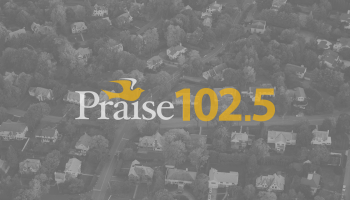From Washington Post:
By Rev. Jim Wallis
Glenn Beck has picked a fight with me, but he recently started a more troubling battle with the nation’s churches with his criticism that “social justice” is “code” for “communism” and “Nazism,” and that Christians should leave their churches if they preach, practice or even have the phrase on their Web site.
While Beck initially claimed that “social justice is a perversion of the Gospel,” he now suggests his concern was really the association of the phrase with “Big Government.” He even adds that when “social justice” refers simply to individual charity, it is permissible to him. But for millions of people, this is not a joking matter. Christians across the theological and political spectrum believe that social justice is central to the teachings of Jesus and at the heart of biblical faith. Because Christians couldn’t “turn in” their pastors to “church authorities” as Beck suggested (the pope would turn himself into . . . himself), many have started turning themselves in to Beck as “social justice Christians” — 50,000 at last count.
Journalists, cable and radio talk shows, and even Jon Stewart and Stephen Colbert have reported on or spoofed Beck’s attempt to discredit this concept. What might be lost in all this are the facts that a commitment to social justice unites Christian churches of different doctrinal and political beliefs. Even leaders in Beck’s own church and scholars of Mormonism have made it clear that they believe social justice is integral to their faith and that they want it known he doesn’t speak for the church.
While the term has sometimes been used to support ideologies of the left and right, social justice is in fact a personal commitment to serve the poor and to attack the conditions that lead to poverty. These are some of the most passionate beliefs of a younger generation of Christians and one of their most compelling attractions to Jesus Christ.
Dr. Martin Luther King Jr. was the archetypal “social justice Christian” and the one from whom many of us have drawn inspiration. King inspired me to build movements for change, not to build big and tyrannical governments, as Beck has charged. King clearly called for more than private charity: He called for changing structures and, yes, for using the “government” to end racial segregation and establish voting rights for African Americans. And it was King acting in what he believed to be obedience to God, not a preference for totalitarian governments, that led to remarkable achievements of helping to realize a more just society.
If Beck had, from the beginning, made an argument for small government and private charity, none of us would have responded to him. But on his show this week he wrote on his blackboard: “My definition of social justice” is “the forced redistribution of wealth, with a hostility to individual property, under the guise of charity and/or justice.” I doubt many churches in America would agree with that.
A debate over the role of government is good and healthy, as is discussing the relationship between personal and social responsibility. People of faith who believe in social justice can be found across the political spectrum. They would apply the concept in different ways; vote Republican, Democrat or independent; and have varying views of government — both smaller and larger than my own. We make progress together when we agree to public policies that are smart and effective government. Even the conservative Heritage Foundation has a video on “social justice.” The key for people of faith is to stand up for the poor, even against wealth and power when necessary.
But I’ve learned that to merely challenge Beck’s attacks leads to being called “Marxist,” or to hear warnings that “the hammer will fall” on you or to face threats that he will devote a week of shows to your demise. My offer of a personal invitation to a respectful and civil conversation was met with more threats and name calling. Jesus said that we should love our enemies and pray for those who persecute us. So whatever Beck does, Christians who want to follow Jesus should not personally attack Beck but, rather, should pray for him, for the poor and for our country, which is being harmed by an increasingly poisonous public discourse.
This is the right way to stand up to Glenn Beck. Who knows; it may be the moment to launch a new movement of Christians for Social Justice.
Jim Wallis, a preacher and editor in chief of Sojourners magazine, served on the White House Advisory Council on Faith-Based and Neighborhood Partnerships. His most recent book is “Rediscovering Values: On Wall Street, Main Street, and Your Street ¿ A Moral Compass for the New Economy.”
RELATED: Glenn Beck Creates More Controversy By Targeting Socially Conscious Christians














